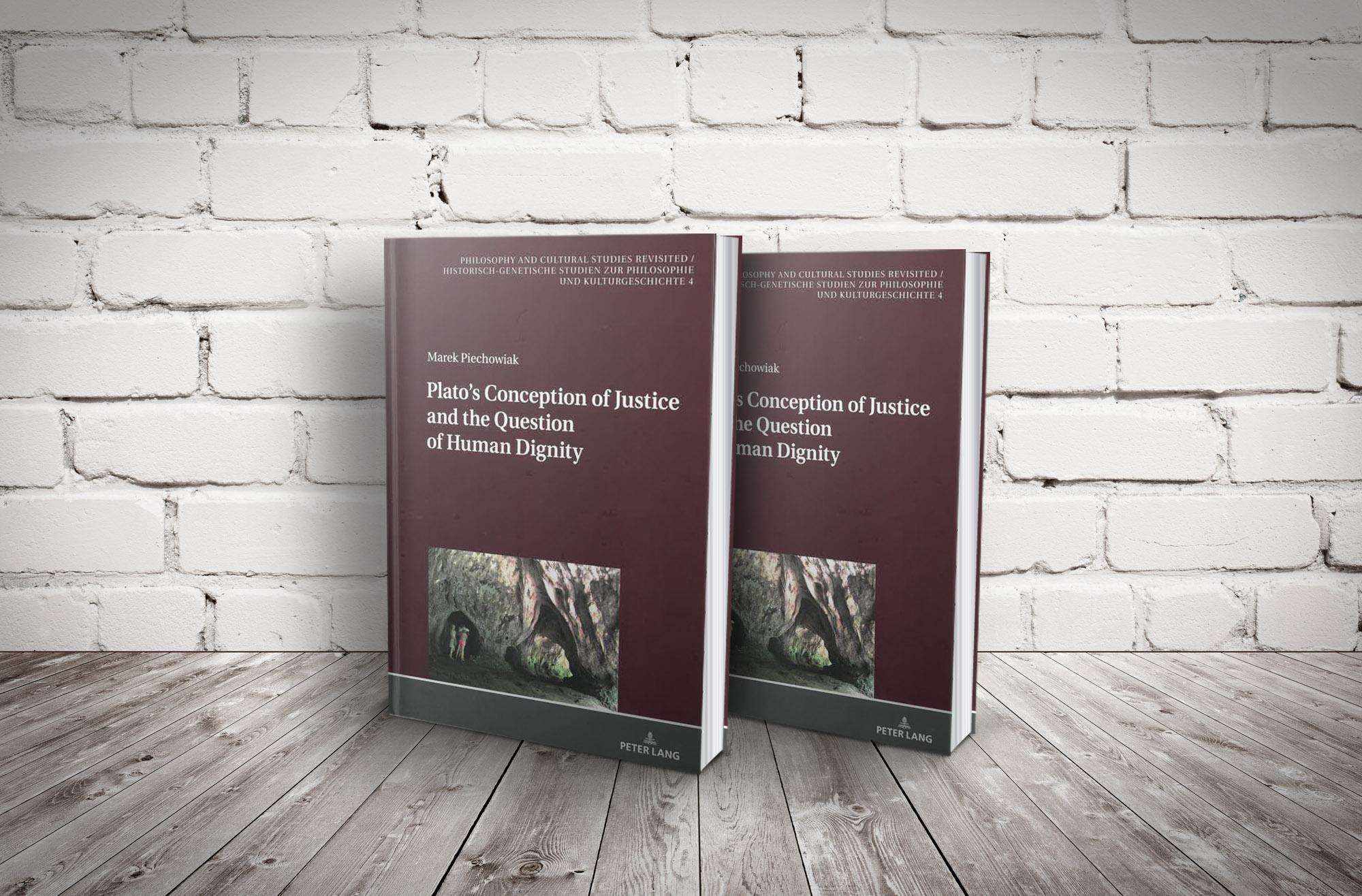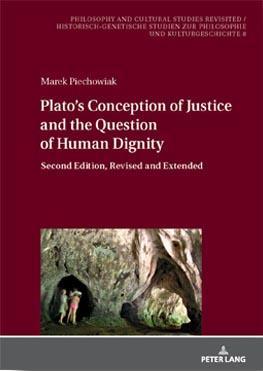
finished
Plato’s Conception of Justicefrom the Perspective of the Contemporary Foundation of Law in Human Dignity

principal investigator / project leader
project value: PLN 156,473
funding source: National Science Center
discipline: law
location: Poznań
duration: 2013 2014 2015 2016 2017
RESEARCH PROJECT
Plato's Conception of Justice
from the Perspective of the Contemporary Foundation of Law in Human Dignity
Research Unit

Grant Amount
156 473 PLN
Funding Source

Duration of Research Project: March 2014–September 2016
The project, though about Plato, relates to one of the fundamental problems of contemporary civilisation: are human rights, which are based in human dignity, truly universal in space and time? If they are, then the greatest thinker of the ancient times, Plato, has something interesting to say about it.
Plato’s Conception of Justice and the Question of Human Dignity

This book is the first comprehensive study of Plato’s conception of justice. The universality of human rights and human dignity are among the crucial philosophical problems in modern-day legal orders and in contemporary culture in general. If dignity is genuinely universal, then human beings also possessed it in ancient times. Plato not only perceived human dignity, but a recognition of dignity is also visible in his conception of justice, which forms the core of his philosophy. Plato’s Republic is consistently interpreted in the book as a treatise on justice, relating to the individual and not the state. The famous myth of the cave is a story about education taking place in the world here and now. The best activity is not contemplation but acting for the benefit of others. Not ideas but individuals are the proper objects of love. Plato’s philosophy may provide foundations for modern-day human rights protection rather than for totalitarian orders.
Research objectives
The prime objective of the work is a comprehensive reconstruction of Plato’s conception of justice, which takes into account the core of the contemporary axiological foundation of law, that is the recognition of inherent dignity as the source of human rights.
The second objective, is finding and highlighting such elements in Plato’s philosophy. Taking these aspects into consideration allows for presenting an entirely new integral approach to Plato’s conception of justice. It differs from Karl Popper’s proposition dominating the handbooks, which is centred around the idea of Plato’s totalitarianism. Popper’s conception was repeatedly, also quite thoroughly criticised, however no comprehensive positive counterproposition such as the planned monograph has been presented as yet.
The work is to accomplish a historical aim alongside a systematic one that is acquiring knowledge on the axiological foundation of the contemporary legal systems - first of all, on human dignity. This aim may be expressed in the question whether we can learn anything from Plato on the dignity that is recognised in modern acts of law. Plato endeavours to seek dignity not so much in the changeable attributes but rather in the immutable, specific manner of existence.
Research results
Interpretation of Plato’s conception of justice
The historical and doctrinal goals of the project were achieved. The researcher proposed a coherent interpretation of Plato’s conception of justice, including elements typical for contemporary notions of dignity as the fundamental value of legal systems, defined as inherent, non-transferable, universal, equal and inviolable. Moreover, the researcher indicated a possibility to interpret some of Plato’s texts as directly related to a certain human perfection, characterized by fundamental traces, which nowadays are attributed to dignity.
Contemporary conception of justice
The semantic goal was also achieved. The researcher attempted to define the type of human dignity, which is regarded by contemporary systems as the source of human rights. The literature on the subject significantly lacks discussion and answers on this matter. A number of conceptions of dignity come short in simultaneous inclusion of characteristics recognized by law as relevant attributes. Although the conceptions that do include these concepts, for example Kantian-like ideas, define what dignity is and what its outcomes are, they fail to indicate directly what dignity is. This project confirmed the hypothesis that dignity may be understood as an existential ideal, that it should be sought not in the observable and variable essence of human existence, but in a man’s way of being (dignity is an ideal in the “to be” rather than “to have” aspect of life).
Community of women
The researcher also completed additional goals, which were not foreseen at the project planning stage, but transpired to be significant not only for the completion of the main goals, but also for charting new directions in research. During the project, a new possibility of posing and justifying a new, rather controversial, hypothesis (new also in the field of research on Plato’s works), related to the functions served by the story of a community of women, emerged. Although in literature on the subject, usually in the anti-totalitarian interpretations of Plato’s texts, the story of a hypothetical state is treated as an exercise in deliberation on a good (the best) system, so far nobody, as it seems, has proposed a clear hypothesis that the story about the community of women, which is a part of this model state, for a reader constitutes an exercise in courage, understood as dexterity in holding on to reasonable convictions in the face of strong feelings (passion and desire). Not only this hypothesis, but also its justification, are crucial for the proposition of interpreting Plato as a thinker, who notices individual dignity of a human being.
Practical application of results
The results of the study are crucial for the legal science's doctrine of internationally and constitutionally protected human rights; mainly in relation to the recognition of universal dignity and universal laws resulting from it. Finding elements typical for strengthening morality and law in human dignity in Plato’s works is a significant argument for universality. One can hope, that the presented results will be a starting point for further research on the universality of dignity and human rights. Plato’s conception is among a few that offer definite answers to the question “What is dignity?”, which is important in the situation when “dignity” is in danger of becoming deemed a hollow name and hence in danger of eliminating the notion of dignity from legal systems.
The results of the project are also important for philosophy, both in the semantic and the historical aspect. Studies on Plato’s conception of justice are also a reflection on moral cognition itself, and not only on the historical understanding of this type of cognition. Furthermore, they are simply a reflection on human dignity, independent of it being recognized by legal systems or not.
Publications
Plato’s Conception of Justice and the Question of Human Dignity, 2nd edition, Revised and Extended

Peter Lang International Academic Publishers: Berlin 2021. ISBN: 978-3-631-84524-0, DOI: https://doi.org/10.3726/b18092
Read more
- Thomas Aquinas – Human Dignity and Conscience as a Basis for Restricting Legal Obligations “Diametros” 47 (March 2016), p. 64-83. Peichowiak M. (2016).
- Plato’s Conception of Punitive Justice In: Universality of Punishment, eds. Antonio Incampo and Wojciech Żełaniec, Cacucci: Bari 2015, p. 73-96 (Unità del sapere giuridico. Quaderni di scienze penalistiche e filosofico-giudiciche. Dipartimento di Giurisprudenza. Università degli Studi di Bari « Aldo Moro »). Piechowiak M. (2014)
- Kallikles i geometria. Przyczynek do Platońskiej koncepcji sprawiedliwości [Callicles and Geometry: On Plato’s Conception of Justice] In: Księga życia i twórczości. Księga pamiątkowa dedykowana Profesorowi Romanowi A. Tokarczykowi, ed. Zbigniew Władek, in cooperation with Jerzy Stelmasiak, Włodzimierz Gogłoz and Krzysztof Kukuryk, vol. 5: Prawo, Wydawnictwo Polihymnia: Lublin 2013, p. 281-291. Piechowiak M. (2013).
- Przemowa Demiurga w Platońskim „Timajosie” a współczesne pojęcie godności [Demiurge’s Speech in Plato’s ‘Timaeus’ and the Contemporary Notion of Dignity]. In: Abiit, non obiit. Księga poświęcona pamięci Księdza Profesora Antoniego Kościa SVD, eds. Antoni Dębiński, Piotr Stanisz, Tomasz Barankiewicz, Jadwiga Potrzeszcz, Wojciech Sz. Staszewski, Anna Szarek-Zwijacz and Monika Wójcik, Wydawnictwo KUL: Lublin 2013, p. 655-665. Piechowiak M. (2013).
- Platońskie widziadło sprawiedliwości[Plato's Semblance of Justice] „Themis Polska Nova” 2013, no. 1 (4), p. 5-18. Piechowiak M. (2013)
Reviews